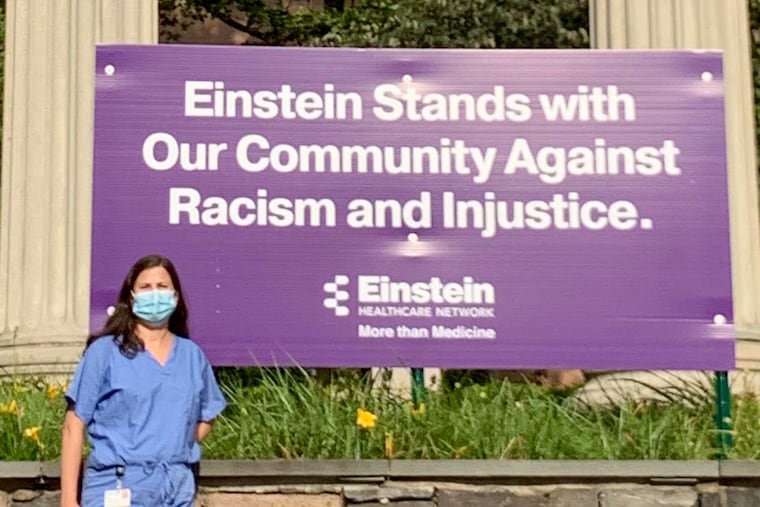Studies find coronavirus eradicated preterm births in Europe. Why hasn’t that happened in Philadelphia? | Expert Opinion
I woke up last week to an article asserting that the COVID pandemic had eradicated preterm birth in some European countries. This sounds like good news, but my mind turned to anger because I know there is truth in the space between the NICUs in this article and my own in North Philadelphia.

After 132 grueling days working as a pandemic neonatologist in a safety-net hospital, I woke up last week to an article asserting that the COVID pandemic had eradicated preterm birth in some European countries. This sounds like good news, but my mind turned to anger recalling the patients and parents and protests of the last few months because I know there is truth in the space between the neonatal intensive care units in this article and my own in North Philadelphia.
The truth is that prematurity was not eradicated by the COVID-19 pandemic. The pandemic shined a light on structural and racial inequalities around the world, and the preterm birth rate is no exception as a health metric with inequitable outcomes. Affecting one in 10 pregnancies in the United States, its frequency has numbed us to this adverse outcome. In the absence of alarm, and the presence of success stories abroad, part of the narrative remains untold.
I spent the last four months working as a Band-Aid for rampant preterm birth. Fearful days attending high-risk births with N95s as lifesaving filters against COVID. Solemn evenings sitting brokenhearted with new mothers as they wept over newborn separation. Terrified middle-of-the-night calls wheeling specialized equipment across the hospital lobby and into the sacred halls of the adult COVID intensive care unit, where I was tasked with saving sick babies born to sick mothers and resolved to do just that. Grief-stricken early mornings, the sky still dark, kneeling with my eyes closed, my breath held, as I listened for the absent heartbeat of newly dead babies. Yes, babies.
Every anecdote I share belongs to a woman who hoped to have a healthy pregnancy. Each preterm birth is a neonatal intensive care unit admission and a catalyst for maternal trauma, which affects the mothers and babies long after discharge. These mothers grieve regardless of their country or continent, skin color, or language. Their heart-wrenching stories are not captured by data.
The data, however, is concrete. At my hospital, Einstein Medical Center Philadelphia, 11% of babies are born premature between April and June each year, even though my colleagues maintain the lowest rate of serious maternal complications of any hospital in Philadelphia. This rate did not decrease during the pandemic. In the United States, rates of preterm birth in 2018 were 14% for Black women compared with 9% for white women. Systemic racism is responsible for this increased rate of preterm birth in Black women.
European women, and a select group of privileged women in the United States, are shielded from some of the most pernicious stressors during the pandemic. Work-from-home jobs, unemployment checks, access to child care, and health insurance protect some pregnant women, while stressors such as poverty, unemployment, or physically demanding jobs increase the likelihood of preterm birth for others. Just as more Black and Latinx women contract COVID while pregnant, the pandemic compounds and creates stressors for women already at high risk of preterm birth.
The news of diminished preterm birth rates celebrates progress for white, European women. The news is simultaneously silent about the women of North Philadelphia.
Preterm birth is a disparate pandemic tale. It is the tale of essential workers and societal stressors impacting some pregnant women while others shelter-in-place. It is the tale of my pregnant neighbor disinfecting FedEx boxes on her porch. It is also a tale of parents visiting their babies, my patients, in the neonatal intensive care unit wearing FedEx uniforms. These tales are interconnected in their parallel truths, and both must be told.
» HELP US REPORT: Are you a health-care worker, medical provider, government worker, patient, frontline worker, or other expert? We want to hear from you.
Rachel Fleishman is an attending neonatologist at Einstein Medical Center Philadelphia.